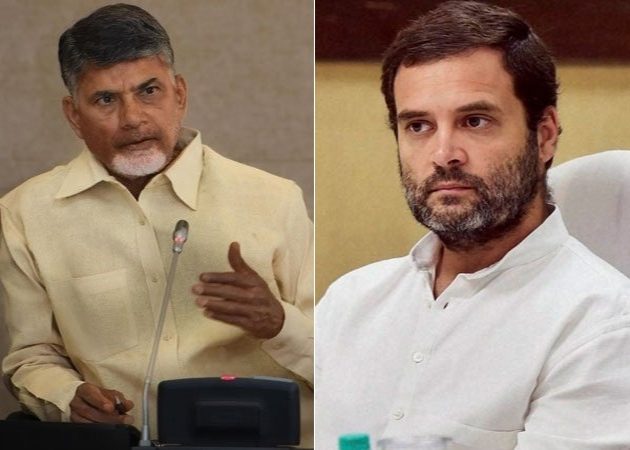
Cong attempts to woo AP electorate with spl status promise

When Andhra Pradesh was divided to carve out a separate Telangana State ahead of the 2014 elections, the Congress was seen as the main villain in the residuary AP for hasty and unscientific bifurcation. As a result, it was routed in the elections. Such was the anger of the voters that the party drew a blank in both the Lok Sabha and Assembly polls and a majority of its candidates lost their deposits.
It is now the turn of the BJP to face the public wrath over denial of the promised Special Category Status (SCS) to the State. It has emerged as the single most important campaign issue ahead of the general elections.
The Congress now senses an opportunity to redeem itself in a region that was once its stronghold with a promise to grant SCS if it is voted to power at the Centre. The ruling Telugu Desam Party (TDP), headed by N Chandrababu Naidu, has also thrown its weight behind the Congress on the issue, shedding its ideological baggage of anti-congressism. However, there will be no pre-poll alliance between the two parties.
The Congress president Rahul Gandhi on February 22 made an unequivocal assurance that his party, if voted to power, would fulfill the promise made to the people of Andhra at the time of bifurcation. “No force on earth will stop my party from granting special status to Andhra,” he declared while addressing a public meeting at Tirupati.
Significantly, he chose the temple town to make the commitment as it was here that Prime Minister Narendra Modi had promised SCS to AP while addressing an election rally five years ago.
Though SCS was not part of the AP Reorganisation Act of 2014, it was promised by the then Prime Minister Manmohan Singh on the floor of the Parliament. “When Prime Minister makes a commitment, it is a commitment made by the people of India to Andhra Pradesh. We will honour it at any cost,” Rahul asserted.
“On behalf of Congress, I promise that we will fulfill this promise, irrespective of whether a Congress or a non-Congress government comes to power in AP,” he said.
What is special category status?
At the heart of the raging row is a set of promises made during bifurcation of Andhra Pradesh in 2014. Among them is the oral assurance given on the floor of the Parliament by the then Prime Minister Manmohan Singh that AP would be given Special Category status for a period of five years to tide over the problems. It was supported by BJP which included the promise in the manifesto. The idea was to handhold the successor AP since it would lose a significant amount of revenue as a result of Hyderabad going to Telangana, the new state that came into existence on June 2, 2014.
Special Category states would get funds from the centrally-sponsored schemes and external aid in the ratio of 90% grants and 10% loans, while other states get 30 percent of their funds as grants. Besides, they would be given tax breaks and excise duty concessions to attract industries.
However, the 14th Finance Commission did away with the distinction between general and special category states since it had taken into account the level of backwardness of states in the proposed transfer of funds to states. It recommended higher devolution of central taxes to the states. The idea was that adequate resources would be allocated through tax devolution and grants to address interstate inequalities. The special category status was therefore restricted to the three hill states of Jammu and Kashmir, Himachal Pradesh and Uttarakhand and those in the Northeast. It was also decided that a revenue deficit grant would be provided for certain states for which devolution alone would be insufficient. AP was one of the states that were to be given a revenue deficit grant.
While ruling out special status to AP in the light of the 14th Finance Commission report, the BJP leaders, however, maintained that the Centre was committed to granting the monetary equivalent of a special status to Andhra and would bear 90% of the share of schemes sponsored by the Centre.

